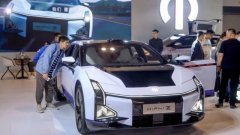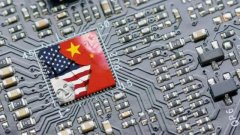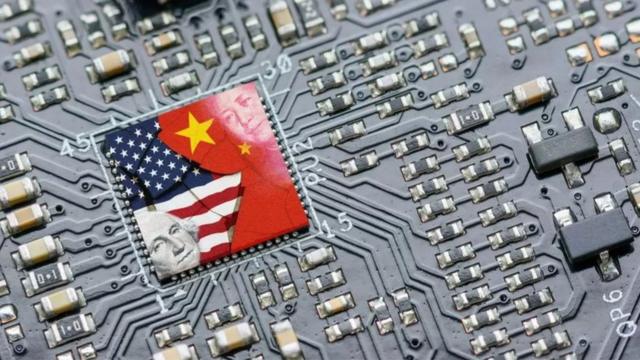
In 2022, the United States passed the chip bill and provided US $ 53 billion aid and subsidies to companies producing semiconductors in the United States.
After the deep -water zone of the US -China Semiconductor entered the AI chip (chip), the export control of the United States to restrain the development of China's semiconductor industry is still being upgraded.On March 29, the Joe Bidn government had no warning of the government that the government announced that it was amended to prevent China from obtaining the US AI chip and chip manufacturing equipment on the grounds of national security.
This new revision came into effect on April 4, less than a week after the release.According to this new rule, export control is also applicable to laptop -type computers with internal -loaded related chips. Experts analyzed that this will affect the development of Chinese personal computers (PC industry) in the future.
From high -end AI chips to preliminary mature chips, the United States frequently comes out, trying to slow down the development of the development of China's semiconductor industry in all directions.However, in order to break through the U.S. ban, China has also continued to increase the development of the local semiconductor ecosystem.So, the United States' restrictions are now effective geometry?And how much space is China's anti -US restriction and independent development?
Marco Mezger, director of the operating chief of the German Core Dream Semiconductor (Neumonda), said that under the US sanctions, China has indeed been unable to obtain some key ultraviolet light carvings (EUV) technology, and it is not yet mastered.The Lightscar Factory has developed and developed technology in the past 20 years.But he also responded to the reporter in the email, "Through the big road through Rome ... Although the sanctions slowed down the development process of the semiconductor industry in China, it also promoted the development of Chinese local enterprises in advanced chips and packaging technology." 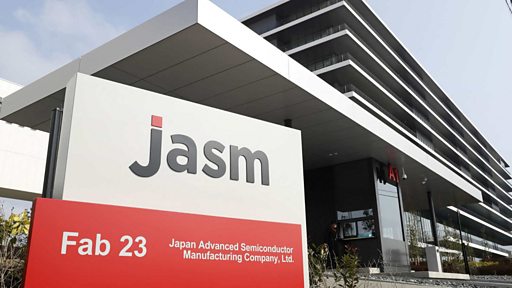
Taiwan chip giant TSMC is put into operation.P>
Metzgel said, for example, in the memory industry, China has the Yangtze River memory (YMTC). Before the company's sanctions, the company launched the most advanced NAND FLASH technology based on its own XACKING technology.In terms of DRAM memory, Huali Microelectronics (CXMT) located in Hefei is currently advancing to 18nm technology to provide self -produced DRAM technology for the Chinese market: "In fact, when you have no other choices, there are many innovative methods.It can approach (advanced) computing power or ecosystem ... This is what China is currently in -China is adjusting various strategies and providing funds to support the local semiconductor industry to serve the local market first.
However, Gregory C. Allen, director of the China Mansion International Strategic Research Center (CSIS) Artificial Intelligence and Advanced Technology Center, emphasized to BBC that the strategy of the United States to develop China's AI chip development is becoming increasingly increasingly increasinglywide.He analyzed the revised version of the revised version earlier this month. In the future, even if ?? China may continue to obtain a high -end AI chip designed by Nvidia through other channels, but it is likely to be a third -party distributor.It will not be too big.He believes that under the ban on the United States, Chinese companies cannot buy high -end chips directly from Huida.
In February this year, the Wall Street Journal disclosed that the U.S. Department of Commerce banned the self -driving truck company Tusimple output 24 A100GPU chips to Australian subsidiaries because the U.S. government was worried that these A100 chips might be sold for sale.Enter China.In the future, Tunson denies relevant allegations, claiming to purchase these chips, which will definitely only be used to Australian subsidiaries.According to this report, Tucson's future co -founders are from China. One of them was born in Beijing and is currently an American citizen.
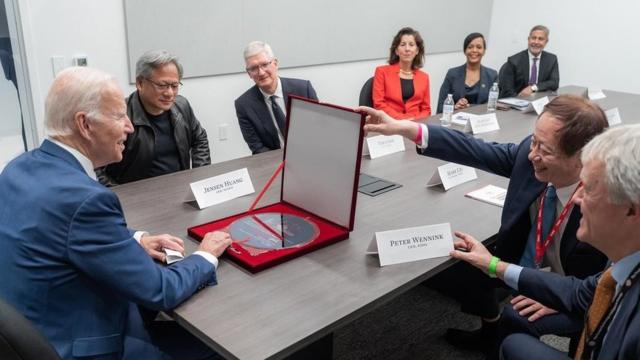
Image source, Joe Biden Facebook
The chairman of TSMC (second from right) was given a wafer after the installation ceremony of the TSMC Arizona factory.On the left of Biden is Huida Huang Renxun.
What does the new US ban mean?
The export restrictions after the White House after the end of March have 166 pages.The modified content includes the limitation of the Chinese chip export, and also limits the laptop computers containing these chips.Some analysts said how this ban affects China's personal computer (PC) industry development in the future, which is worthy of attention.
In addition, after the new ban came into effect on April 4, the United States did not let go of this, and even signs of the mature chip industry that will be increased to low -level.
On April 5th, the sixth US-EU Trade and Technology Council (TTC) Ministerial Conference ended in Belgium. The United States and the European Union announced that they would extend their cooperation for three years to cope with the "intervention behavior" in the semiconductor industry.The two sides issued a common declaration that the EU will evaluate China's huge production capacity in the mature chip process "how to affect the European market", while US Minister of Commerce Gina Raimondo emphasizes that about 60%of the world's mature chips are now made by China, China, China, China, China, China, China, China, China, China, China.The government provides huge subsidies. "This is the reason that the market may be severely distorted. This is why we (the United States) pay attention to this issue."
On the same day, Katherine Tai, a US trade representative, also spoke in Belgium that if the United States and Europe do not take necessary measures and Beijing's "non -market policy" will cause far -reaching economy and economic and economic and economic and economic and economic and economic and economic and economic and economic and economic and economic and economic and economic and economic and economic and economic and economic and economic and economic and economic and economic and economic and economic and economic and economic and profound economies andPolitical influence.
However, even so, the main goal of the United States is still on high -end AI chips.The first edition of the White House released in October 2023 is designed to prevent more advanced AI chips designed by Nvidia and other companies to China.The ban said that in the future, the United States will adopt the rules of "Case-By-Case Review", including technology-level, customer identity, compliance plan and other information to comprehensively review the sales of AI chips produced by the United States.
Many analysis states that the Ministry of Commerce's restrictions on the export of China and products in China seems to only tighten further.
Semiconductor expert, Liu Peizhen, director of the "Taiwan Economic Institute" of the Taipei Think Tank's "Taiwan Economic Institute", told reporters that this kind of restraint did not show signs of loosening.However, China is also striving to establish an independent and controllable supply chain.She analyzed that in order to resist US sanctions, China was the first to strengthen funding. It is expected that the official investment in semiconductor industry funds can reach US $ 40 billion, which is used to support the construction of chip manufacturers and equipment factories.Local operators above the home.
The second part is the ban on the United States. For example, Huawei and China's chip production partners apply for a patent, which involves self -aiming quadruple imaging technology (SAQP).For the production of 5 -nanometer chip: "Although its yield is too low and does not have commercial operations, it means that the United States is still strong ... The determination and process of China's strengthening of chip research and development is still worth paying attention."
Past semiconductors are a global ecosystem, that is, the completion of a chip product. From raw materials, design, wafer manufacturing to foundry chips and seal testing, etc., it is often the collaboration between different companies in the world.But now countries hope to have their own ecosystems.
Anshel Sag, a senior semiconductor analyst at Moor Insights Strategy, said he believes that the US sanctions on the Chinese semiconductor industry have played a certain role in the short term.But in the long run, China will eventually establish its own chip industry independent of the West.Whether it is really able to catch up with the head "still needs to be observed."
China no longer needs ASML?
One of the focus of China ’s try to get rid of US sanctions and develop the local semiconductor ecosystem is undoubtedly an optical carved equipment.Last week, the Hong Kong Media Nanhua Morning Post reported that the news that Nauda Technology Group (Naura Technology Group) is developing the optical carvings system. At the same timeVarious strategies, hoping to produce domestic 5nm chips without the support of the ASML light carved machine.
The report also analyzed that if SAQP and ASML old deep ultraviolet light (DUV) lithography machine can be used, China will have the opportunity to create 5 nanometer chips.Light engraving machine (EUV).Under the pressure of the United States, Chinese companies have reserved a lot of DUV lithography machines in recent years.
Semiconductor analyst Sag analyzed the BBC that he believes that China's semiconductor manufacturing capacity may reach DUV level, but it is unclear what output is currentEssence
Sagta explained that many media are trying to create a discourse that China has overcome technical restrictions and sanctions, but in fact China cannot create products that compete with ultra -micro (AMD) and Nvidia.Even in the smallest scale, Huawei's latest chips are obviously not as good as Qualcomm and MediaTek's latest products in terms of performance: "Real evidence will always be reflected in the benchmark testing and power consumption. At present, Huawei produces its own production.There is a big gap between the chip and the top chip.
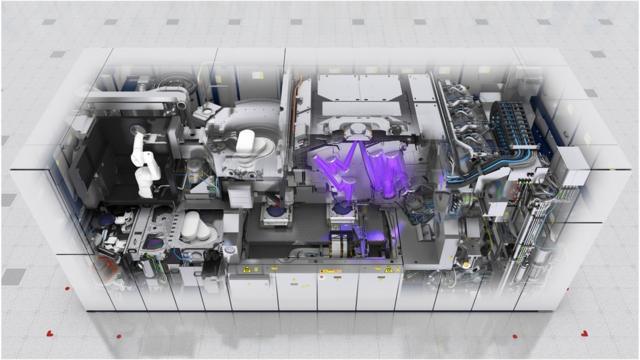
Image source, ASML
The export restrictions ofEUV machines have affected the development of China's advanced process chips.
Huida continues to be in the center of the vortex
Various analysis pointed out that Washington's constantly developing semiconductor industry in China may help enhance its military strength.One of the reasons is that the current advanced military system actually relies on high -end chip processors.
According to the research of chip war author and American scholar Chris Miller, the first appearance of the chip industry in the United States stems from the demand for accurate guidance of missiles.He believes that every trend of modern warfare is related to computing technology.Miller told the Taiwan Media this Weekly that for China's high -speed development in "computing power", the White House is now holding "zero peace thoughts", that is, one side is profitable, and the other is definitely a loser.
The geopolitical struggle of the semiconductor industry has made the current leader of the AI high -end chip, the US Huida Company, after TSMC, Taiwan, becoming the new protagonist of the US -China chip war.In 2023, Huida's A800 chip specially produced by the Chinese market in order to bypass the US ban on the United States, it was banned after the United States announced the new ban last October.The A800 chip is mainly used for the training of large AI models, which is suitable for the current popular artificial intelligence models with popularity and difficulty in training.
Chinese Internet manufacturers include Ali, Baidu, Tencent, and byte beating that have been scrambling to purchase A800 chips, which can no longer be sold to the Chinese market. Therefore, how to affect the development of Chinese companies in large model training in the future is global attention.Topics.
Huang Renxun, President and CEO of Huida, believes that a series of bans in the United States have allowed Chinese semiconductor companies to start producing their own AI chips and compete with Huida's current pride.
U.S. diplomat magazine commented that even if the American business and the technology community will complain that these increasing restrictions are unreasonable and have a certain reason, but in the semiconductor competition, political interests will eventually be overlooking these concerns.Essence
Huang Renxun, the founder of Huida Company, told the Financial Times last year that the Chinese market is irreplaceable and losing Chinese customers will bring huge losses to American companies.However, CSIS's Allen industry said that at the moment when the United States actively imposed sanctions, it was impossible for American companies to take risks to trade with China outside the ban.

